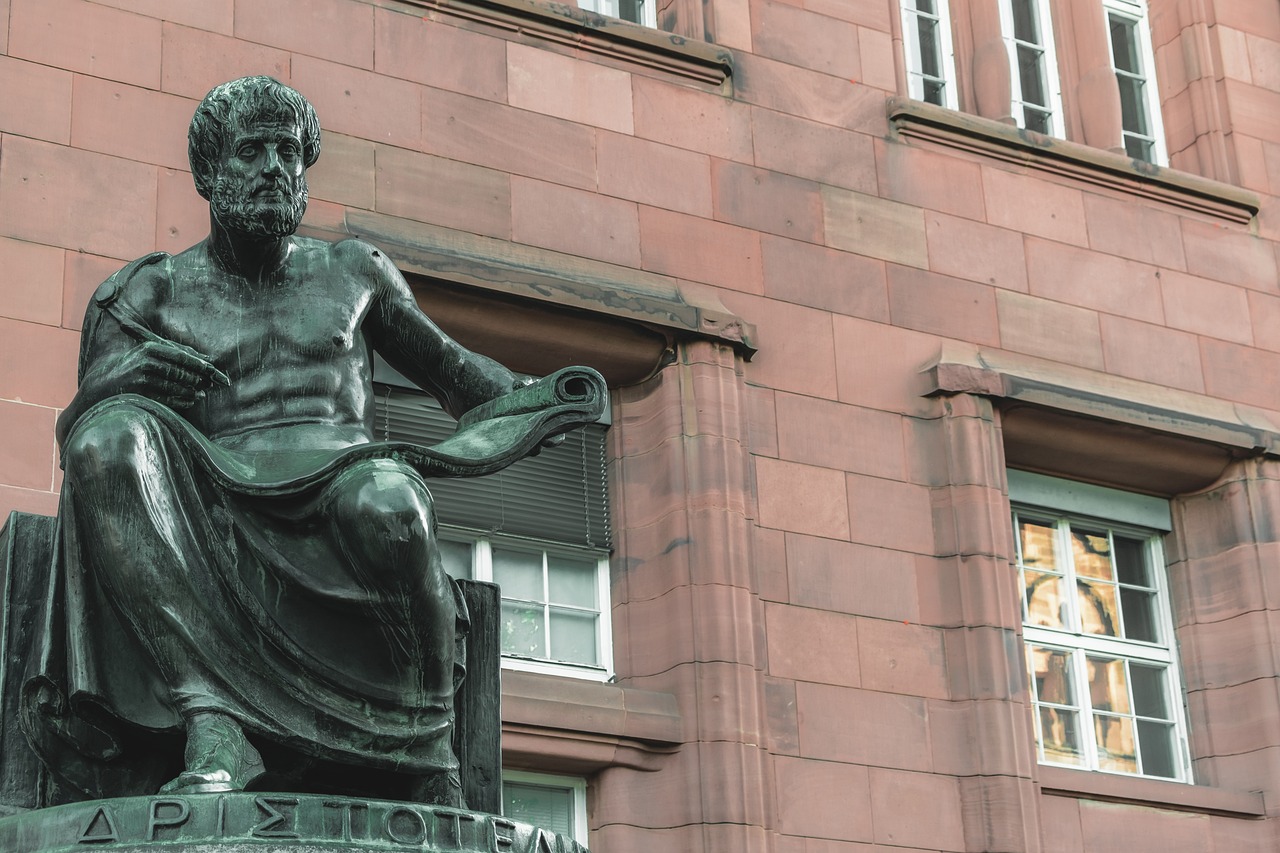
AI and the Economy
AI supports the case to introduce a Universal Basic Income (UBI)
Read a summary using the INOMICS AI tool
One of the key features of the global economy is that it tends to grow over time. In fact, that growth has become something of an expectation in the modern capitalist system, where the success of corporations is often judged by their growth, even over relatively short time horizons.
This economic growth is seen as a good thing by economists, because it theoretically empowers us to satisfy our needs with less effort, and frees us up to enjoy our lives more. As our economies have become increasingly efficient over the past several decades, some have increasingly called for shorter work weeks to take advantage of this increased productivity. The advent of new and useful AI tools only strengthens this call.
The link between economic growth and leisure time
Typically, two main factors contribute to economic growth; increasing population and improving technology. Both of these factors are represented by inputs in the standard Cobb-Douglas model of the economy (population is represented by labor, L, which will tend to increase as the population grows). But it’s the latter factor, technological progress, that ties AI to the idea of a universal basic income (UBI). Technological progress – represented by the multiplicative factor A in basic Cobb-Douglas models – allows society to produce more with the exact same levels of employment and capital stock.
John Maynard Keynes, one of the great historical figures in economics, predicted that by 2030 people would work for only 15 hours a week. He believed this because he expected that the increase in economic productivity, largely in part due to improving technology, would allow people to produce more in less time. This would then allow for workers to have much more leisure time, which would increase overall welfare and happiness.
Thinkers and philosophers in history have often viewed leisure time as the ultimate goal of increasing productivity. For example, Aristotle, in his work titled Nicomachean Ethics, once said that “the end of labor is to gain leisure” (though he also advised that we use our leisure time wisely, stating “...the objective of leisure can and should be to sustain other aspects of our lives which make us uniquely human: our souls, our minds, our personal and civic relationships”). This view makes sense. What is the point of toil if not to provide for ourselves? And if we are sufficiently provided for, why should we continue to toil needlessly?

Image credit: Pixabay.
As technology advances to the point where we can produce enough goods and services for everyone in record time, it seems only fair that everyone should have their basic needs met. This would then allow people the freedom to pursue their own passions and interests – seemingly a great human achievement.
UBI and AI
This sort of vision of a human-centric utopia begins to point to the need for a systematic way to ensure everyone is provided for fairly. One idea that may accomplish this is, of course, implementing a universal basic income (or UBI). The development of (potentially) transformative AI tools lends much weight to the theoretical arguments around implementing a UBI – and thus increases the need to seriously discuss the merits and drawbacks of such a system.
The basic idea of a UBI is that the government would pay everyone a basic stipend to live on. Then, generally, people would be free to continue pursuing business enterprises or working careers as they saw fit to earn extra money or work on a passion project. Notably, this situation differs from communism in that public ownership of everything is not implied or even desirable in such a situation.
Certainly, a society with a UBI could be considered some flavor of socialist, but it’s not necessarily anti-capitalist. UBI itself would not change the normal functioning of capitalistic markets. Therefore, capitalist structures and the rewards it gives to innovators and efficient business leaders could remain, yet the UBI would grant individuals a greater degree of personal freedom.
How AI can lessen some arguments against a UBI
One common argument against a UBI is the idea that having a UBI will make people not want to work. If everyone made enough money to live comfortably without doing anything, lots of people would possibly choose to stop contributing to society.
Further, if a UBI is substantial enough, it might crowd out certain lower-income professions entirely. If people could make as much money as a fast food worker, librarian, or computer repair technician (for example) without doing any work, it’s very likely that nobody would choose to work in those roles. This could either inflate the pay for these roles to unsustainable levels (as demand outstripped the supply of labor), or it could cause these services to disappear entirely.
The solution to this problem is not a lower UBI. If the payments weren’t substantial enough to provide for the basic needs of the recipients, they would not achieve the intended goal of a UBI, which is to do just that. Proponents of a UBI wouldn’t be satisfied with only a small income that left people still unable to provide for themselves.
However, advanced AI might provide a solution to this potential labor supply problem, at least in some industries. If AI advances enough to allow machines to replace humans in these roles, suddenly the idea of a UBI seems quite desirable. Humans wouldn’t have to work these types of jobs at all, but society could still benefit from them.
In fact, AI is already starting to transform some of these roles. The first level of customer or IT support in many industries often takes the form of an AI chatbot to diagnose the issue, provide an appropriate answer, and escalate to a human professional if help is still needed. What’s more, a recent Wall Street Journal article revealed that several fast food chains are already replacing humans with AI that will take your order in the drive-thru. Wendy’s announced in mid-2023 that they would be partnering with Google Cloud to do the same. Meanwhile, news about AI replacing librarians has yet to come – but certainly many functions of a librarian could be automated by generative AI, including searching for books, directing people to specific amenities, reserving rooms, checking out books, and more.
In the perhaps not-so-distant future, then, people who would formerly have worked in these roles could instead pursue their own passions – like producing music, writing, furthering their education, or simply spending time with their families. It’s not hard to imagine society becoming more fulfilled, happy, and even more healthy in this case.

Image credit: Pixabay.
Indeed, one common argument in favor of a UBI is that it would free up citizens to pursue their passions and enjoy life rather than being slaves to their desk jobs. Since the COVID-19 pandemic, trends like quiet quitting have shown that modern workers are attempting to rebalance the scales in their favor, and would like to enjoy the benefits of economic growth a bit more in their own personal lives. Advanced AI tools could help make this a reality without reducing economic output.
How much productivity is enough?
While our current slate of AI tools cannot do everything, and certainly haven’t displaced most workers, they have the potential to massively increase human productivity.
Especially as these tools become more sophisticated, specialized, and powerful (perhaps culminating in the development of more advanced and human-like AI), larger segments of the economy may become dominated by them – potentially costing people jobs as well as creating new ones via the process of creative destruction. And many jobs, even if they’re not fully automated, will experience a potentially huge increase in efficiency as specialized AI tools are developed for their fields.
Which begs the question: at what point has society achieved enough productivity? The idea that profits and output will grow forever, infinitely, is ludicrous when considered for any length of time. Yet capitalism has no built-in ceiling, or “off” switch, and continues to prioritize growth of the bottom line.
Therefore, a purely capitalist society where growth and returns are valued above all else may not be the best system forever. Indeed, it may have already worn out its welcome. Many would argue that rising wealth inequality and global issues like climate change are fairly direct results of the unsustainable pursuit of profit margins that capitalism has championed. What, then, should take its place?
One possible answer could be a society with a somewhat capitalist structure, where sustainable provision is provided by a UBI. One where people are more free to develop their careers, forge new businesses as entrepreneurs, and make extra money how they see fit, but where society no longer deifies the paradigm of infinite, quarter-over-quarter growth.
In such a system, the basic gears of the economy would continue to turn as AI-assisted or even entirely automated occupations produce as much as we do now with far fewer labor hours. This would free up people to live more fulfilling lives. This includes people whose fulfillment comes from work: a UBI would give people the flexibility to pursue job training and advanced education for the jobs they want to try, or give them a great safety net as they try to develop their entrepreneurial ideas.
Advanced AI capabilities lend a lot of weight and potential realism to these ideals, and the straightforward idea that everyone should have a basic income to take care of these needs. If it becomes possible in the coming decades, why shouldn’t we give it a shot?
AI does not automatically solve the challenges of fairly distributing economic gains
As aforementioned, AI signifies yet another massive leap forward in potential productivity since Keynes made his original “15-hour work week by 2030” prediction in 1930. In that regard, how have we been doing over the past century?
A graph put together by the site Our World in Data – using data from the World Bank and Maddison (2017) – shows the incredible exponential increase in world GDP, especially since 1900. Yet, working hours in developed countries have remained at roughly 40 hours per week for decades. In several developed nations, work weeks of more than 40 hours per week have even become more common than they were in the 1990s, according to the London School of Economics’ blog.
Clearly, the massive increases in productivity haven’t exactly freed up the average working person as Keynes predicted. This is because increased growth doesn’t automatically distribute itself fairly. As productivity has increased over the past century, there have been modest gains in leisure time. But, wealth inequality has risen dramatically.
Increased productivity will change the economy, and a UBI is just one possible way that productivity can trickle throughout the economy. But there are other ways productivity could contribute: wealth inequality is the natural result if nothing is done to ensure that increased prosperity is distributed throughout society.

Image credit: Pixabay.
The reason for this is that the existing structures of power in the capitalist system are bent towards infinite growth. Those at the top are benefitted when productivity increases, and have no proper incentives to share the wealth. Instead, like metaphorical dragons, they’re able to hoard their wealth to ludicrous levels.
Again, there is no productivity target or goal in our current economic system; if we become more productive, the economic engine we’ve created is designed to continue shooting for the moon, not help us all live happier lives. It’s up to us to reassess our goals, take stock of the world around us, and pivot. If AI creates enough production to keep society running without most of us needing to work so much, or even at all, then there’s a much stronger case to be made that people should be given a basic living stipend and allowed to pursue their own lives with a greater degree of freedom.
Louis O. Kelso once said in his co-authored book Two-Factor Theory: the Economics of Reality,
“The sooner the world solves its economic problems, the sooner its inhabitants can afford leisure and peace and get on with the non-material things that are inherently important: the work of mind and spirit that is gloriously and uniquely human, the work that no machine can ever do”.
Perhaps it’s nearly time to let those machines do the material work for us; after all, we’ve got to live our lives to the fullest.
Header image credit: Pixabay.
-
- Postdoc Job
- (Remote)
- Posted 2 weeks ago
Vacancy for a Postdoctoral fellow
At University of Ghent in Gent, Belgium
-
- PhD Program, Program, Postgraduate Scholarship
- Posted 1 week ago
PhD Program in Management - 11 Fully Funded Scholarships
at Luiss Guido Carli University of Rome in Rome, Italy
-
- Postdoc Job
- Posted 1 week ago
Postdoctoral Research Fellow Opportunity
At University of Notre Dame in Notre Dame, United States











